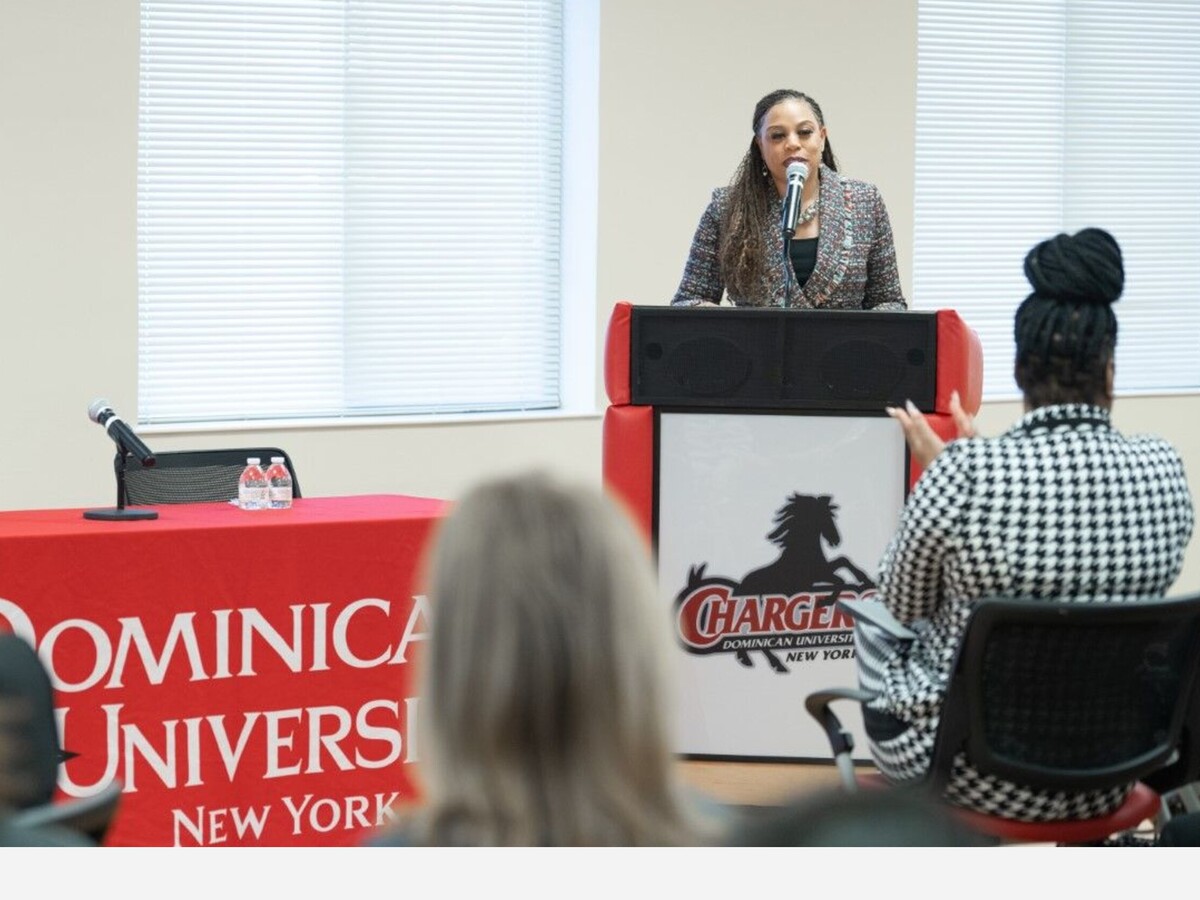Image


If we can check our bank accounts on our smartphones from wherever we are, why can’t we access our healthcare information the same way?
That was one of the questions posed during Dominican University’s symposium on how information technology will affect the future of healthcare in Rockland County and beyond.
The March 29 panel discussion, titled “Understanding How Information Technology Could Change the Way We Deal With Public Health and Emergency Response,” was presented on the Orangeburg campus by Dominican and the Palisades Institute.
Panelists addressed developments in informatics — the science of using data, information, and knowledge to improve health and the delivery of healthcare services — and how this emerging field is shaping emergency response to public health concerns.
Dominican recently launched a Public Health Informatics and Technology (PHIT) undergraduate and post-baccalaureate certificate program for students, first-responders and IT professionals — one of only 10 colleges and universities nationwide to receive a Workforce Development grant from the Office of the National Coordinator (ONC) for Health Information Technology.
The need to allow various data “silos” across the healthcare system to become interoperable — able to exchange information securely — was a key theme of the panel discussion.
“We need people’s health information to flow and move with them, in the same way that financial information does,” panelist Lisa Lewis, the ONC’s deputy national coordinator for operations, said at the start of the symposium. “It’s amazing to me that I can get my banking information anywhere in the world but if anything happens to me or my husband, my health information is not with me, and we have to change that.”
Informatics is about more than access to information, she said: Obtaining critical public health data can help level the playing field so that where a person lives does not determine the quality of their health.
Lewis had spent the previous day on campus receiving an update on Dominican’s PHIT program, which received a $2.2 million ONC grant — the only recipient focusing on emergency services.
Sharing data among hospitals and urgent cares would address “recidivism” — why a patient keeps returning to the Emergency Department, said panelist Patricia Kivlehan, a nurse practitioner at Good Samaritan Hospital and a lecturer in Dominican University’s nursing program. Knowing how many visits the patient had made to other facilities, their medication and other factors would help “put the pieces together,” she said.
Panelist Timothy Egan, executive director of Rockland Paramedics Services, pointed to the widespread use of Twiage, software that lets EMS providers send information to hospitals so emergency departments can be ready for the patient who’s on the way. But he expressed frustration that the data from Twiage is not collected and shared with other “silos” in the healthcare system.
This points to the need to “close the loop” by moving disparate entities toward the Fast Healthcare Interoperability Resources standard for improving data exchange, Lewis said.
A student in the audience asked about data security for patients — could, for instance, a pharmaceutical company access personal information that’s being collected and shared across systems?
“The most important point about data transmission is to ensure that it is secured,” said panelist Nilanjan Chakravorty, chief data officer EmpiRx Health. “It is secured and encrypted, even at rest. We call data security in motion and at rest. It is secure at all touchpoints.”
VIDEO:
Dr. Joan H. Facelle, former Rockland health commissioner and vice chairperson of Dominican’s Board of Trustees, pointed out that interoperability can enable the rapid and accurate reporting of information in managing local public health emergencies, such as Rockland’s active polio case and its measles outbreak.
Ivan Rudolph-Shabinsky, director of the Business Administration Division at Dominican, moderated the discussion. “What we’re trying to do here, in my view, is take technology and health and revolutionize public health,” he said.
Sister Mary Eileen O'Brien, the university’s president, opened the symposium by noting Dominican's unique focus on the emergency services, to help prepare students “to make our public health response more effective as we move into the future.”
Visit duny.edu for more information about Dominican University.
Read more by this author at robertbrum.com